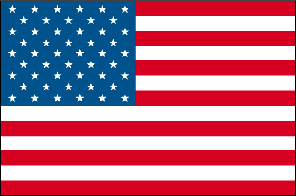US to send top envoys to Myanmar
WASHINGTON: Two senior US officials will travel to Myanmar next week in the latest move by President Barack Obama's administration to engage the reclusive military regime, the State Department said Friday.
Assistant Secretary of State for East Asian and Pacific Affairs Kurt Campbell and his deputy, Scot Marciel, plan to visit the military-ruled country on Tuesday and Wednesday to meet top members of the military junta and detained opposition icon Aung San Suu Kyi.
"They expect to meet with senior government officials and with members of the opposition including Aung San Suu Kyi and representatives of ethnic groups," said deputy State Department spokesman Robert Wood.
The talks are a follow-up to discussions last month in New York between US and Myanmar officials that marked the highest-level American contact with the regime in nearly a decade.
The Obama administration last month concluded that the longstanding US approach of isolating Myanmar had failed to bear fruit, but said it would not ease sanctions without progress on democracy and human rights.
In August, Myanmar's military leader Than Shwe held an unprecedented meeting with a visiting US senator, Jim Webb, a leading advocate of engaging the junta. Webb also met with Suu Kyi.
A State Department official, Stephen Blake, quietly visited Myanmar in March to hold talks with both the junta and the opposition. It was the first trip by a US envoy to the country in more than seven years.
Campbell told a congressional panel last week that the dialogue would "supplement rather than replace" the sanctions regime.
"Engagement for its own sake is obviously not a goal for US policy," he said.
The chief US diplomat for Asia acknowledged that the talks, which aim to press for democratic reform in Myanmar ahead of elections promised by the ruling generals for 2010, would be neither simple nor straightforward.
Suu Kyi's National League for Democracy (NLD) plans to shun the elections, the first since a 1990 vote that the party won in a landslide. The junta ignored that result, and has kept the democracy activist under house arrest for much of the past 20 years.
The junta has begun to show signs of willingness to engage in dialogue with the United States.
It placed 64-year-old Suu Kyi under a further 18 months' house arrest in August, effectively barring her from taking part in the elections.
But the generals granted her two rare meetings with Labor Minister Aung Kyi, the official liaison between her and the junta in the first such talks since January 2008.
Suu Kyi also wrote a letter to Senior General Than Shwe in late September offering her co-operation in getting Western sanctions lifted, after years of favoring harsh measures against the generals.






